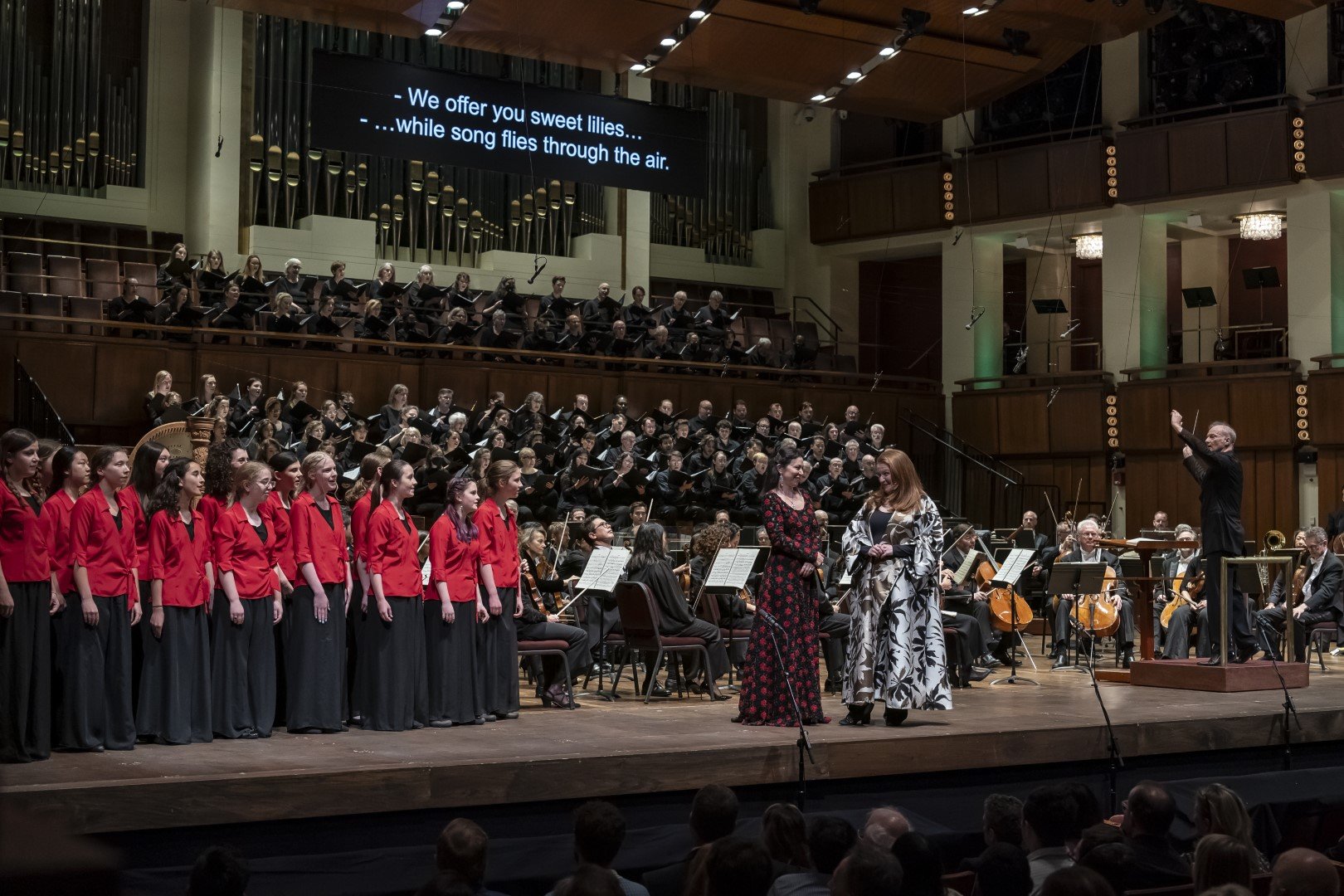National Symphony’s First Concert Opera ‘Otello’ Is an Artistic Triumph
/By Truman C. Wang
6/11/2024
Photo credit: Scott Suchman
The National Symphony Orchestra in Washington D.C. gave two concert performances of Verdi’s Otello on June 7 and 9. I attended the second one. Gianandrea Noseda, the orchestra’s music director since 2017, conducted magnificently. Fresh from the Zurich Ring Cycle, maestro Noseda gave Otello a grandiose symphonic treatment you rarely hear in an opera house. The explosive, spectacular opening storm was truly spasimo l’universo as prescribed in the Verdi-Boito production book, and the relentless tensions never let up for the next two hours. The orchestra played with great force, detail and eloquence in a handsome horseshoe-shaped hall; I would rate the acoustics above the Geffen Hall in New York City, as being more warm and responsive. I could easily discern the sparkly pizzicato strings in the campfire chorus, or the great warmth coming over the three cellos at the start of the love duet. (A few days prior, in the NY Phil’s shiny new hall, I could hardly hear the pizzicato strings and tremolo bass in the first movement of Mahler Second.)
One advantage of doing Otello in concert is you can hear music which invariably gets drowned out by premature applause in an opera house – the soft last notes of the love duet for strings and harp, and Desdemona’s final “Amen” after “Ave Maria”.
Joining forces were the excellent Choral Arts Society of Washington, University of Maryland Concert Choir, and Children’s Chorus of Washington – an altogether dynamic ensemble participating fully in the drama. In the storm, at the campfire, and in the great act three Venetian scene, “the chorus themselves create the space for the protagonists to act in” (quoting Boito’s letter to Verdi), and, in my opinion, even improves upon the Shakespeare play with their urgency and pruning of subplots (like the entire first act with the comical business of Desdemona’s father.)
The assembled cast was world class (though one often hears worse at a major opera house.) Arsen Soghomonyan, the Otello, does not have the biggest voice, but has the ideal baritonal heft and excellent squillo to deliver a thrilling “Esultate!” in the beginning, then the tone softened into honey for the love duet, and further softened, in Otello’s act three monolog, completely blinded by jealousy, into a feverishly anguished whisper (sung mezza voce on the words “l’anima acqueto/my anguished soul”) Mr. Soghomonyan’s fine acting and singing as the tragic Moor would not soon be forgotten.
Erika Grimaldi was the Desdemona. She sang with winsome, pellucid tone and beautifully floated high notes in the Willow Song and high A-flat in “Ave Maria”. In the love duet, at the moment of the first kiss motif, her swooning response “O…tello!” conveyed the deep yearnings of Isolde for her Tristan (Verdi, in fact, admired Wagner’s music dramas, although he chose to follow a different path.) Later on, when she tells Emilia, “There is a dark cloud hanging over Otello…and my destiny”, the last three words sung in a dark hushed tone, one truly believed her. At the same time, this Desdemona was no shrinking violet (“What is my crime?!” she protests defiantly); after all, she has the spunk to defy her parents to marry a Moor.
Roman Burdenko as Iago was also ideal. His sardonic, vocally nuanced, sharply accented “Credo” was a dramatic highlight, ending in a bone-chilling “La Morte è il Nulla/Death is nothing!”). His narration of Cassio’s (fake) dream was also memorable for its chilling villainy.
The opera was presented without any stage props, not even a simple handkerchief that Iago takes out of Emilia’s hand during the act two quartet. That’s fine by me. It forced the audience to use their ears and listen and watch in detail to what’s being sung, said, and played, instead of having the director show them everything, sometimes things that should not be there. Even so, there seemed to be a conscientious effort to follow Verdi-Boito’s staging instructions. In the opera house, during the act three Concertato finale, Iago usually moves across the stage to divulge his murderous plot to Roderigo; here, Iago also moved to the other side of the conductor to talk to Roderigo. Desdemona sang her line on her knees after Otello threw her to the ground (In L.A. Opera’s staging last season she was standing up.) Desdemona’s strangulation and Otello’s suicide all were faithfully carried out and emotionally shattering to witness.
“Esultate!” indeed. An auspicious first concert opera by the NSO. The orchestra is in superb form, with a new $10 million private donation and maestro Noseda’s contract extended two more years, to 2016/17. Here’s hoping for more great things to come.
Truman C. Wang is Editor-in-Chief of Classical Voice, whose articles have appeared in the Pasadena Star-News, San Gabriel Valley Tribune, other Southern California publications, as well as the Hawaiian Chinese Daily. He studied Integrative Biology and Music at U.C. Berkeley.






